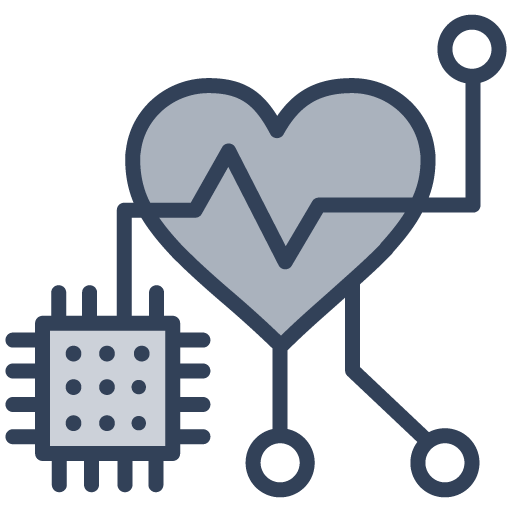Healthcare Informatics
The research area of healthcare informatics focuses on addressing current and future healthcare issues and challenges, such as the aging population and recurring geographical/economic/societal disparity in accessing healthcare services.
Researchers take a contextually grounded and problem-based approach to developing and testing models and solutions to address the challenges. Empirical investigations are built on collaborative partnerships with healthcare institutions and advanced analytics techniques for large datasets.
What We Do

Collaborate intensely with healthcare institutions to design, develop, and evaluate digital solutions and policies to address contemporary healthcare challenges.

Advance knowledge and techniques in modeling and sense-making large and heterogeneous clinical data for patient well-being.

Deliver strategic and actionable technology-based policies and guidelines to manage healthcare sector transformation.
Sub Areas
- Clinical Decision Support
- Electronic Medical Records
- Heterogeneous Clinical and Genomic Data Modeling Using Advanced Deep and Machine Learning Techniques
- Privacy and Security of Medical Records
- Smart Technology Design and Deployment for Patient Care
Our Research Projects

Multilingual Acoustic Predictors of Dementia in Singapore: A Machine Learning Approach
This research focuses on developing the Cognify tool for early dementia detection using acoustic features from voice recordings. It aims to create a culturally sensitive model incorporating Singlish, Malay, and Chinese language, addressing linguistic gaps in existing Western-centric studies. The goal is to improve non-invasive, early dementia prediction in Singapore.

Implementation of Empowering Diabetic Patients
Enhancing diabetes care through EMPOWER app upgrades, integrating wearables, expanding food database, AI health coaching, and continuous glucose monitoring for select participants.

EMPOWERing Patients with Type 2 Diabetes Mellitus (T2DM) in Primary Care through App-based Motivational Interviewing
Enhancing diabetes management involves a mobile app-based approach. By combining motivational interviewing (MI) and AI-powered nudges, we empower behavior change and shared decision-making in patients with type 2 diabetes mellitus (T2DM).

QuitTogether: A Technology-Based "Narrative Therapist" for Smoking Cessation
QuitTogether addresses the global health burden of smoking-related health issues. It recognizes differing views on agency in addiction treatment and uses Narrative Therapy techniques to enable smokers to construct healthier life stories, aiding in quitting smoking.

Explainable Risk Models for Heterogeneous Patient Populations in Critical Care
This project aims to improve the accuracy and explainability of clinical risk prediction (e.g., of unforeseen adverse events) in critical care by explicitly modeling underlying heterogeneous subpopulations and through the use of auxiliary knowledge.

Designing and Evaluating Healthcare QA Assistants: A Knowledge Based Approach
Healthcare question answer (QA) assistants address user health queries, tackling challenges like misinformation and information overload. This project explores integrating language models (LMs) and knowledge graphs (KG) to enhance the design and evaluation of healthcare QA systems.
- Smart Technology Design and Deployment for Patient Care

iTILES: Independent Living, Tile by Tile
iTILES is a playware system that combines interactive tiles, mobile apps, and data analytics to improve users' functional and cognitive abilities through engaging gameplay. It collects data through multi-sensory inputs and provides therapists and users with actionable insights to optimize their rehabilitation journey.
- Smart Technology Design and Deployment for Patient Care

Digitalization of Healthcare Services
The healthcare sector is undergoing a major digital transformation due to rapidly changing demographic populations. This project examines the design, implementation, and usage of digital technology among healthcare workers in hospital settings.
